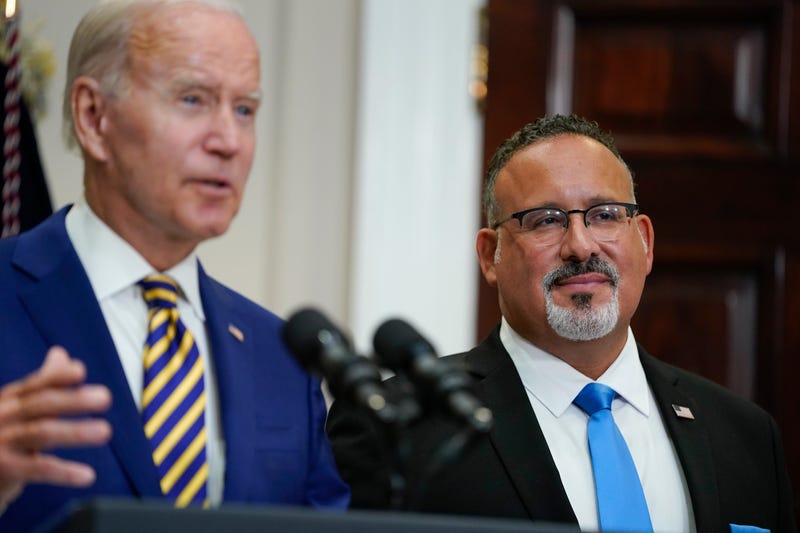
SOUTH JERSEY (KYW Newsradio) — President Joe Biden’s executive order to cancel student loan debt for tens of millions of Americans is drawing both criticism and praise from across the political divide, and there will likely be legal challenges ahead.
The executive order cites the post-9/11 HEROES Act of 2003, which gives broad authority for the Department of Education to make decisions on reducing or eliminating loan terms during a time of war or emergency. The law was adopted with overwhelming bipartisan support at a time when U.S. forces were fighting two wars, in Afghanistan and Iraq.
Both former President Donald Trump and Biden cited the law to pause loan payments through the COVID-19 pandemic.
In a legal opinion released Wednesday, the Justice Department said that the HEROES Act of 2003 gives the administration “sweeping authority” to reduce or eliminate student debt during a national emergency, ”when significant actions with potentially far-reaching consequences are often required.”
Villanova University law professor Michael Moreland said there’s an argument to be made about overreach, because 20 years ago, Congress did not explicitly intend on the HEROES Act to simply wipe out debt obligations for 50 million people.
“The major question that’s looming out there is, did Congress, in giving this authority to the Department of Education, mean to include something as important as canceling student loan debt on this kind of scale?” he asked.
“As Justice [Antonin] Scalia once put it in a case, Congress doesn’t hide elephants in mouse holes,” Moreland said, meaning if Congress intended for this sort of thing to happen, it would have been spelled out in the bill.
The problem that comes with a legal challenge is: Who can sue, and for what reason? Individuals aren’t allowed to sue the government over how tax dollars are spent.
“At least initially, it’s hard to see what parties would have a sufficient injury for purposes of standing to challenge this,” said Moreland. He speculates one possible scenario would be an attorney general from a Republican state will leading the charge.
The Justice Department’s legal justification seemed to be anticipating criticism that the broad-based debt cancellation might run afoul of Supreme Court rulings, including a June decision limiting the administration’s ability to combat climate change.
In that case, the court declared that when dealing with such “major questions,” the administration must point to clear congressional authorization when it asserts new power over an important part of the economy.
The Associated Press contributed to this report.



